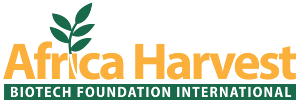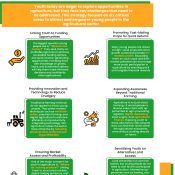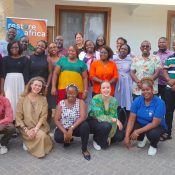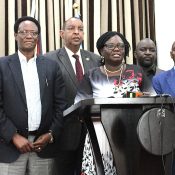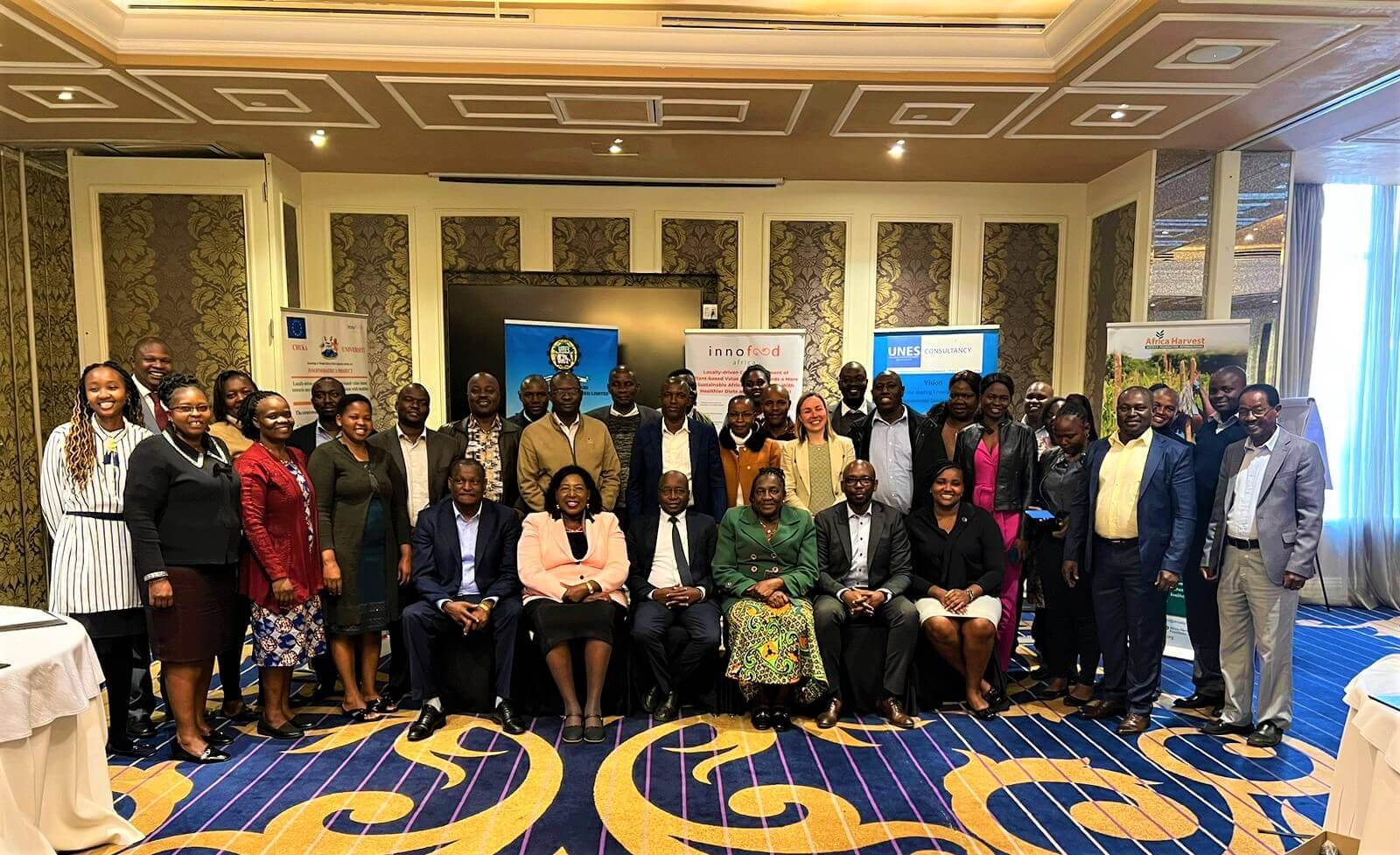
Innovation In African Food Systems: Highlights From The InnoFoodAfrica Stakeholder Engagement Workshop
Africa Harvest, one of the consortium partners implementing the InnoFoodAfrica project, held a stakeholder engagement and dissemination workshop on the 18th of July, 2023, in Nairobi, Kenya. Key stakeholders from academia, research institutions, government ministries, non-profit organizations, off-takers, manufacturers, and media were present. Notably, the Ministry of Agriculture, Kilimo House, Chuka University, the International Potato Centre (CIP), BBROOD Kenya, International Crops Research Institute for the Semi-Arid Tropics (ICRISAT), Tegemeo Cereals, Healthy U, among others.
InnoFoodAfrica funded by European Union’s Horizon 2020 research and innovation programme is a cross-continental project on locally-driven co-development of plant-based value chains towards more sustainable African food systems with healthier diets and export potential. The project focused on Kenya, Uganda, Ethiopia, and South Africa and extends to form a multidisciplinary consortium of 20 partners – 15 in Africa and five in Europe.
The stakeholder engagement and dissemination workshop was convened under work package six, which aims to increase awareness and visibility of the project and create an innovation platform to engage local, national, and international stakeholders for broad technology and knowledge transfer. It also takes care of the maximal exploitation of the project outcomes. Overall, there are seven work packages in the InnoFoodAfrica project.
Africa Harvest CEO Dr. Florence Wambugu opened the workshop with a few remarks. “The future is Drought Tolerant Crops (DTCs) for youth jobs creation”, she noted that an important way of creating jobs for young people in the agricultural sector is by opening up the various DTC value chains, including improved sorghum, orange-fleshed sweet potato (OFSP) and finger millet. Additionally, she emphasized that the results of agricultural research reach the farmers in a way that is easy for them to understand and apply. “Africa Harvest is looking forward to working with more SME’s, becoming more innovative in its operations, and finding ways to commercialize the products coming out of the InnoFoodAfrica project”.
The African continent has a rapidly growing population expected to double to 830 million by 2050. Unfortunately, nearly 420 million of Africa’s youth are unemployed and another third are vulnerably employed. Underemployment peaks at just over half of youth in the labor force in low-income countries. Youth face roughly double the unemployment rate of adults, with significant variation by country.
Dr Florence’s remarks were on the bedrock of the potential of growth in the agriculture sector which is two to four times more effective in raising incomes among the poorest compared to other sectors. Linking this with the large youth population, Africa has the potential to have sustainable food systems with healthier diets and export. Dr. Florence highlighted Africa Harvest’s efforts to spark youth interest in agriculture and create employment opportunities throughout the agricultural value chain. “Youth are looking for opportunities to make money, and we have the solution.”
Expressing his passion for food and nutrition, Henry Ndegwa, Associate Professor in food chemistry at the University of Helsinki, emphasized his commitment to securing a sustainable food supply for the African population by focusing on locally grown crops. During his presentation, he provided an insightful overview of the project’s partners and the specific crops chosen for each country. Notably, cowpea and amaranth were selected for their versatility, as both their leaves and crops can be utilized.
Elaborating on strategies to enhance smallholder farming practices, he stressed the importance of empowering smallholder farmers through training initiatives and providing them with improved seed varieties. He quoted a farmer participatory research that stated, “Do research with the farmers, not for the farmers.” Furthermore, he strongly advocated for the implementation of modern food processing technologies as a means to drive innovation and improve the production of nutritious food.
Leonard Kubok, Food Systems Coordinator at the Ministry of Agriculture, stood in for the guest of honor, Hon Josphat Muhunyu, Secretary to the Ministry of Agriculture. In his address, Leonard extended heartfelt appreciation to Africa Harvest and InnoFoodAfrica for their outstanding contributions to food, nutrition, and the empowerment of farmers. He began his remarks by shedding light on a concerning statistic, revealing that approximately over three million people in Kenya grapple with food insecurity, lacking access to sufficient food at any given moment.
He then proceeded to read the speech prepared by the guest of honor, which highlighted the government’s firm commitment to agriculture as one of the five foundational pillars of the Kenyan economy. The speech outlined the government’s optimistic projection of a bumper harvest for maize production. Furthermore, it emphasized the importance of increasing the utilization of Drought Tolerant Crops (DTCs), promoting conservation and regenerative agricultural practices, and encouraging the adoption of innovative approaches along the production and value chains. These efforts are expected to generate employment opportunities. The speech also underscored the necessity for collaboration and partnerships with like-minded stakeholders to achieve these shared goals.
Noora Kanerva, Prof; Ph.D., Lecturer of Public Health and Nutrition at the University of Helsinki, played a significant role in the event as both a moderator and a presenter. She delivered insightful presentations on two pivotal aspects of the InnofoodAfrica project – work package two and work package five. Work package two centered around the well-being of children and women. It was noted that across all countries, the highest percentage of children suffered from stunted growth, while all mothers were classified as overweight or obese. To improve their nutritional status, both mothers and children were encouraged to increase their consumption of fruits and vegetables while reducing their intake of cereals and dairy products. Notably, the most commonly consumed foods for children were porridge and cereals, while women primarily consumed porridge and bread, among other items. These findings shed light on the areas that require focused attention to ensure better nutrition and health outcomes for children and women in the project’s target regions.
Work package one lead Dr. Peterson Magutu Wara from the University of Nairobi Enterprises and Services (UNES) Ltd., informed that current crop value chains are farmer-driven as opposed to market-driven. To address this challenge, Dr. Peterson recommended the promotion of crops in their specific ‘hotspot’ areas where their nutritional value and production rate are optimum. He also called on the government to develop policies for DTCs that ensure fixed and fair market prices.
Prof. Geoffrey Gathungu, Chuka University presented the findings of a needs assessment carried out in Tharaka Nithi and Busia counties. The results were that soils in typical farms have low mineral levels since farmers do not practice soil analysis. Farmers also use poor harvest and post-harvest practices and lacked knowledge of the best crop varieties. However, as a result of the activities in work package four, farmers who received training on ideal crop varieties and soil fertility measurement are now privy to information that will lead to higher crop yields.
Participants had the opportunity to send in their questions and comments through the Mentimeter platform which provides real-time feedback from the participants both online and in-person making it convenient for everyone to participate. A lot of responses and comments were received. Some of the questions raised included: the role of social behavior change communication in driving markets; the role of informal markets; market expansion; further details on bioplastics and opportunities in Kenya among other questions and comments.
The Kenya Broadcasting Corporation (KBC) covered the stakeholder dissemination workshop on the 7pm and 9pm news bulletin. Africa Harvest CEO, Dr. Florence and Henry Ndegwa, Associate Professor in food chemistry at the University of Helsinki were also interviewed by the media outlet. Value-added samples from the different crop varieties were made available to the participants.
Kennedy Oyugi, an Agricultural Economist at Africa Harvest, concluded the event by delivering a vote of thanks. He expressed gratitude to all the participants for their valuable contributions and encouraged them to take action on the discussions held during the workshop, particularly emphasizing the importance of fostering collaborations and partnerships. With his closing remarks, he motivated everyone to “walk the talk” and actively engage in making a positive impact in the agriculture and food industry sectors.
